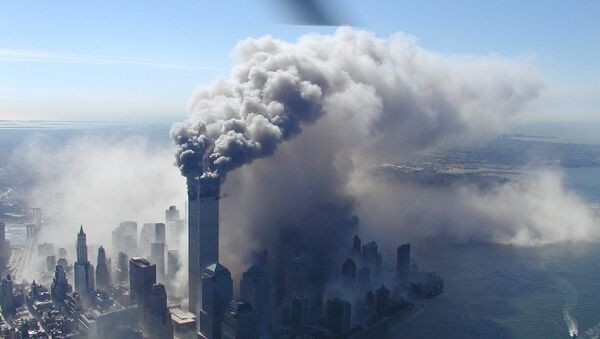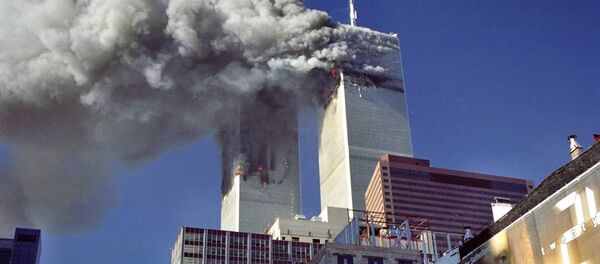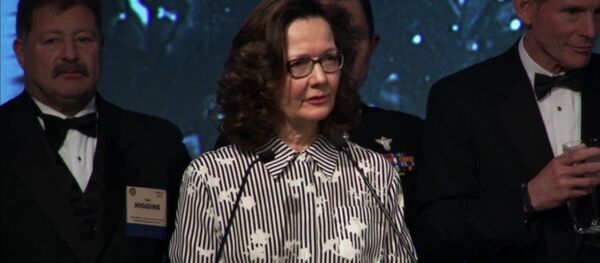Sputnik: So far, there hasn't been any sensational data leaked by the group. How convinced are you that they really hold something of value regarding the 9/11 tragedy?
Karen Kwiatkowski: It's really hard to say. If they do have insurance company and lawyer data, a lot of times some very interesting questions are asked by those organisations as they try to conduct their business of spending money and paying out insurance claims. So it's very possible that they have something, but so far it seems like it's very mundane.
It's very much on the face of it an extortion, money-making opportunity. What will be interesting to see is if it works for them. If money is paid and they withhold information, I think that would actually tell us more so far than the information that they're [providing] — if there's any response to it from the people that would be compromised in some way.
Sputnik: Well the very fact that the group lives off selling stolen credit card information and medical records kind of tells us what kind of a group they are and what they deal in, doesn't it?
It doesn't mean though that we won't learn something as time goes on. With these events, these major catastrophes that occur, very often twenty or thirty years later new information comes out; certainly there's a lot of stuff about 9/11 that really hasn't been released, and anything that's released by our government and by our allies is very redacted. So we know that there's information to be learned. The question is — is this source going to really add to that.
Sputnik: Of course the hackers have threatened to 'bury the US deep state', and if we assume there's some implicating data there, how much of an impact or resonance would these revelations have?
Karen Kwiatkowski: I'm very, I guess cynical about the impact of some of this stuff that comes out. The deep state, if you want to call it the deep state, is very powerful, it's very pro-status quo. It has resisted, and is resisting Trump right now very effectively. It doesn't like change, our government has many ways to defend itself, but also to portray a different kind of truth that can be bought by really most of the population.
Again, questioning the government is something small minorities tend to do. We have not seen great percentages of the American population really questioning their government. I think the Trump election is part of that, a little tiny sliver. But for the most part, people believe their government, and I haven't seen a lot of US government reaction to these threats. They are downplaying them, and so far that is flying; that's the way they're treating it, as basically not important and not interesting. I think they'll continue to do that, and it's highly unlikely it's going to have a huge impact. I wish it did, but I don't think that it will.
Sputnik: Karen, you were of course among those who witnessed events at the Pentagon on 9/11 and questioned the official report about the incident. What discrepancies did you find?
Karen Kwiatkowski: Oh my goodness, there's a great many, but I think just on the initial reaction – I'm in the military, and the Pentagon and the United States was completely undefended against really what we prepared to defend against, which was airplanes off of their flight paths. And yet our reaction that day was the opposite of what it had been in every previous incident before and after. That poses the question, that makes you very interested in why we, the United States military, for example, or the United States government, why we failed so badly on that day to protect our resources. Because that was a shock.
So there's a lot of questions like that – why weren't things normal that day. Because normal – a normal military response, a normal security response, a normal architectural and engineering response in the civilian sector, normal didn't happen that day, it was very abnormal. So I think most people who look at aberrations in things want to know why. And I think we have a lot of things to learn from it.
Sputnik: Do you think we'll ever really know more about the events on 9/11, via hackers, via whistleblowers?
Karen Kwiatkowski: Absolutely, absolutely. Via everything. Because nothing stays secret forever. I just got done reading a book about the John F. Kennedy assassination and events leading up to it – JFK and the Unspeakable: Why He Died & Why It Matters. I just finished it, but it was written about ten years ago. But the huge amount of information that continued, in that case, to flow out, ten, twenty, thirty, forty, fifty years after the event, new information was revealed. So certainly, of course we'll find out more; nothing on the Earth, nothing that's manmade is going to stay secret forever. So we will know. We may be 90 years old, but we will find out, and we'll talk about it, and reflect back on what we thought and how what we thought may or may not have been true. I have utmost confidence that we will find out, not tomorrow, and not because of these particular leaks, but we will find out.
Karen Kwiatkowski is a retired US Air Force Lieutenant Colonel who has served as an analyst at the Pentagon and the National Security Agency. She was in her office at the Pentagon when it was attacked on September 11, 2001, and in the early to mid-2000s began writing on a broad range of sensitive topics, including the 9/11 attacks and what she believed was deliberately misleading intelligence analysis put out by the Pentagon ahead of the Iraq War. In 2003, she became a founding member of the Veteran Intelligence Professionals for Sanity (VIPS), a group of ex-US intelligence officers sending open letters to presidents concerning issues of national security. The views expressed by Karen Kwiatkowski do not necessarily reflect those of Sputnik.




